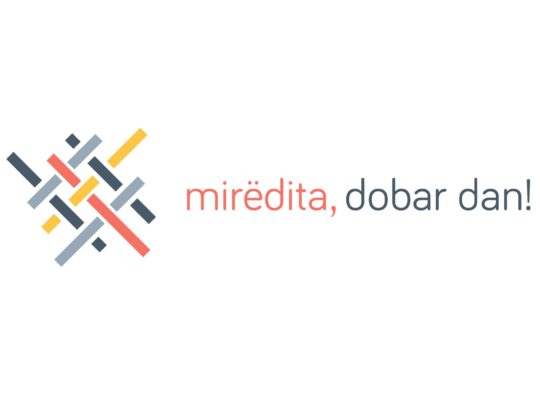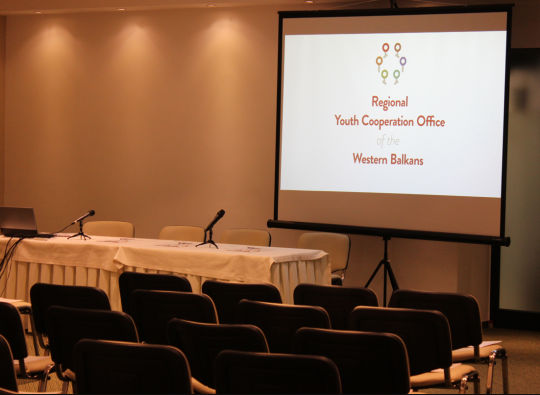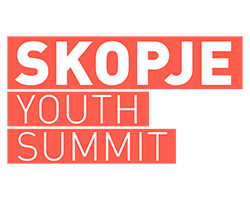On day two of the training, the participants defined essential terms related to minority rights. Working in small groups, the participants crafted collaborative definitions of “minority rights,” “youth work,” “activism,” and “human rights education.” This exercise established common definitions so that, moving forward, the participants shared a common understanding of these fundamental concepts.
Later, the participants had the opportunity to hear from professionals in the field of minority rights. Bogdan Banjac, a representative from the Office of the Commissioner for the Protection of Equality participated online to discuss the institution’s goals, mission, and processes of supporting minority rights in Serbia. Participants engaged with Mr. Banjac, asking him questions about the Office’s cooperation with other local organizations, psychological support for their clients, and the kinds of discrimination they focus on.
The participants then watched a recorded message from Marin Pijukovic, a representative of the Serbian Ministry of Human and Minority Rights and Social Dialogue. The representative spoke about the ministry’s goals and actions in promoting minority rights. After viewing the recording, the participants discussed the Ministry’s message and critiqued the government’s tendency of making empty promises to minority groups.
In the afternoon, the participants divided into mixed groups to discuss the main issues facing minorities in their specific communities. On day three, the participants collaboratively assembled a historical human-rights timeline. Reviewing the timeline, the group reflected on how one’s knowledge of human rights history is constructed and varies significantly based on their regional context. The exercise also documented the rich history of human rights activism from which contemporary activists can draw inspiration.
The group then analyzed the official, legal, and international definitions of the terms they collaboratively defined on day two. They examined important international human rights instruments like the UN Minorities Declaration (1992) and the International Convention on Civil and Political Rights (Article 27). The participants discussed intersectionality in minority rights work and the presence of marginalized demographics even within minority communities. Later on, we demonstrated how human rights law differs from many other types of law, we outlined the ideal framework of cooperation between the government, NGO sector, civil society, and local communities.
Afterwards we played a game called “Privilege market”, the group had to work together to ‘purchase’ different societal privileges that they deemed most important. The activity sparked reflection on how we often take our own privileges for granted, how different privileges ‘conflict’ with each other, and how difficult it is to convince people with privilege to share power.
On day four, the participants traveled to Novi Sad to meet with representatives from the National Association of Youth Workers (NAPOR), Group “Izađi” and Crna Kuća 13 (CK 13). Representatives of both organizations presented their experience and missions. The participants then had the opportunity to meet with each representative to ask them questions about their work. Ivana Novakovic from NAPOR spoke about their efforts to standardize youth work, advocate for youth workers in different institutions, and develop a code of ethics for youth work. Laura Pejak from “Izađi” explained their efforts to help local LGBT youth through law, politics, and public advocacy. They also shared their tactics for outreach to the young LGBT community and potential volunteers. Ozren Lazic from CK 13 discussed the backlash and challenges that face such organizations, the importance of art in activism, and the importance of safe spaces for minority youth. This was one of the most inspiring activities that really stood out to participants.
On day five of the training, the trainers held a debate between those who believed social, cultural and economic rights were most important and those who believed civil and political rights were most important. The debates were spirited and structured. While they concluded with the recognition that all rights are equally important and rely on each other, the main takeaway from the debate was how to have healthy and productive dialogue and respectfully manage disagreements.
Also, we introduced the participants to the NAOMIE model of planning, which provides a framework to help activists thoroughly consider their Needs, Aims, Outcomes, Methods, Implementation, and Evaluation. After this, participants had a task to write their own project ideas that they want to implement regarding minority rights.
Sofija Todorovic from YIHR Serbia facilitated a conversation about what activism means in the regional context of the Western Balkans. The group discussed intergenerational trauma, remembrance, reconciliation, and the differences between history and constructed memory.
On the final day of the training, the participants reflected on what key lessons they’d learned from the training and shared feedback for the trainers.
We are sharing with you some of the feedback that we got from our participants.
“This was a great and informative experience. I feel I learned most from my peers and our interactions in and out of the sessions. The sessions were always more fun and informative than I expected.”
“It was a great learning experience, and a great first introduction to Erasmus+”
“I have learned more about the situations regarding minority rights in the region, what work is being done on them and which is not. Also, I feel I have learned to be more patient when listening to others.”
“I have learn how to be more active in local community, how to approach problems and solving problems step by step.”








